
With the significant improvement of living standards, my country has become the "hardest hit" for diabetes patients around the world. The number of patients is not only huge, but also growing rapidly. According to the International Diabetes Alliance, in the absence of effective intervention measures, the number of people with diabetes worldwide will surge to 578 million by 2030, and this number will exceed 700 million in 2045.
Every year, the number of deaths caused by diabetes worldwide reaches 5 million, which has become a major challenge in the field of public health in our country and even around the world. Traditional diabetes treatment relies mainly on oral and injectable drugs. Although these methods can effectively control blood sugar or temporarily increase tissue sensitivity to insulin, they cannot reverse insulin resistance, let alone prevent the continued deterioration of cellular dysfunction.
In this context, stem cell therapy, as an emerging treatment method, is gradually entering the public eye and showing great potential in the treatment of multiple systemic diseases.
The safety and effectiveness of mesenchymal stem cells in the treatment of type 2 diabetes comes from a recently published review article titled The Safety and Effectiveness of Mesenchymal Stem Cells in the Treatment of Type 2 Diabetes- A Literature Review by regenerative medicine researchers at the University of the Arabian Gulf. They analyzed data on the use of mesenchymal stem cells (MSC) to treat type 2 diabetes in 58 studies, involving the treatment effects of a total of 262 patients.
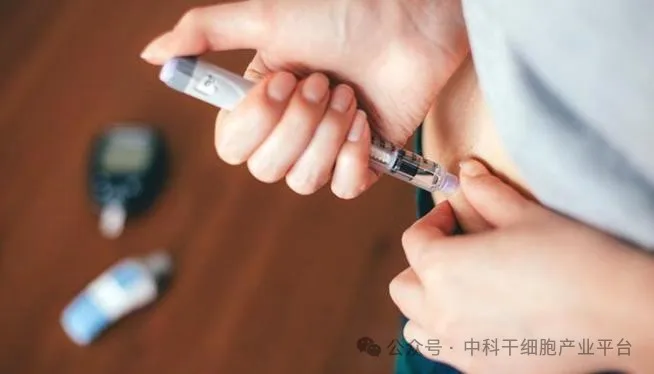
The results of the study showed that after receiving stem cell treatment, the patient's average fasting blood glucose and HbAc1 indicators improved significantly, and the C-peptide level gradually returned to normal. In addition, during the one-year follow-up period, patients 'demand for insulin decreased. This proves that stem cell therapy has great possibilities in controlling diabetes and provides new treatment options for diabetic patients.
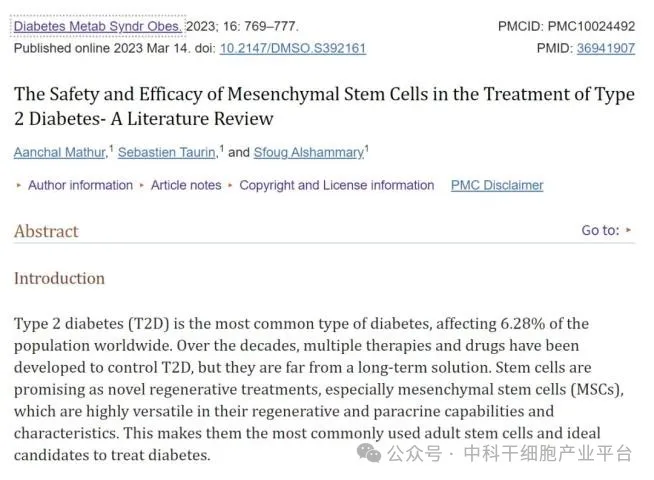
The world's first! Type 2 diabetes has been completely cured, and transplantation of autologous regenerated islets has been successful. The world's first autologous regenerated islets has been successfully cured of diabetes. The patient has been completely free of insulin for 33 months. This is the first-in-human exploratory clinical study worldwide to cure islet-damaging T2D through transplantation of autologous regenerated islet tissue derived from stem cells. According to the news from the Shanghai Science and Technology Party Building Network on May 7, on April 30, Cheng Xin's research team of the Center for Excellence and Innovation in Molecular Cell Science (Institute of Biochemistry and Cell Biology), China Academy of Sciences, joined forces with Yin Hao's team from Shanghai Changzheng Hospital of Naval Medical University. Published the latest research results in the international academic journal Cell Discovery.
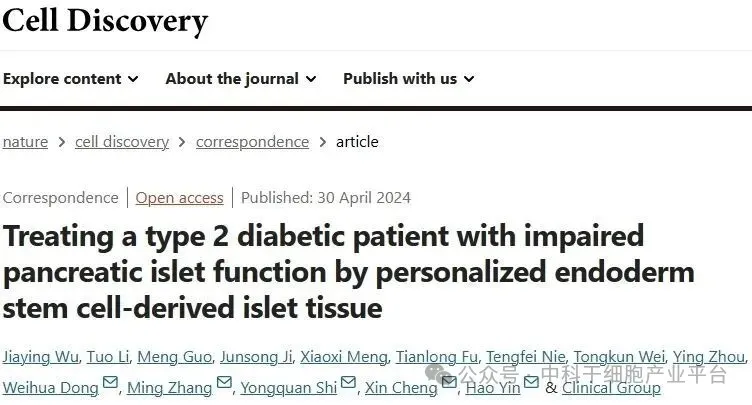
The first case of transplanting islets prepared from chemically reprogrammed pluripotent stem cells to achieve functional healing in type 1 diabetes patients. The research team composed of Shen Zhongyang and Wang Shusen of Tianjin City First Central Hospital, Deng Hongkui of Peking University and Changping Laboratory, and Hangzhou Ruipu Chenchuang Technology Co., Ltd. used chemical reprogramming technology to induce pluripotent stem cells to prepare islet cells, and transplanted them to a type 1 diabetic patient, achieving clinical functional healing. The result was published in the international authoritative journal Cell on the evening of September 25.
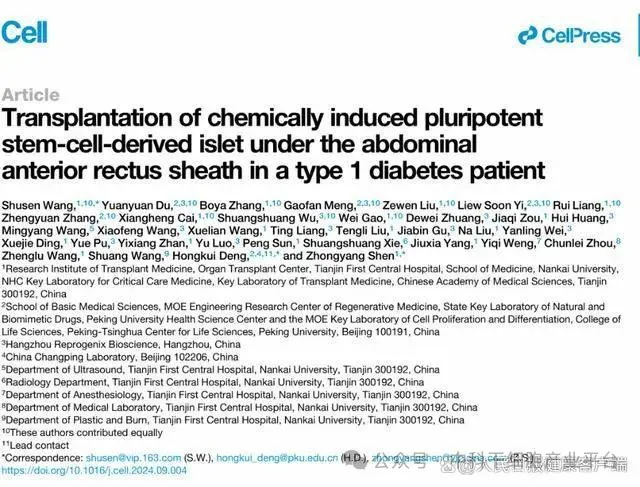
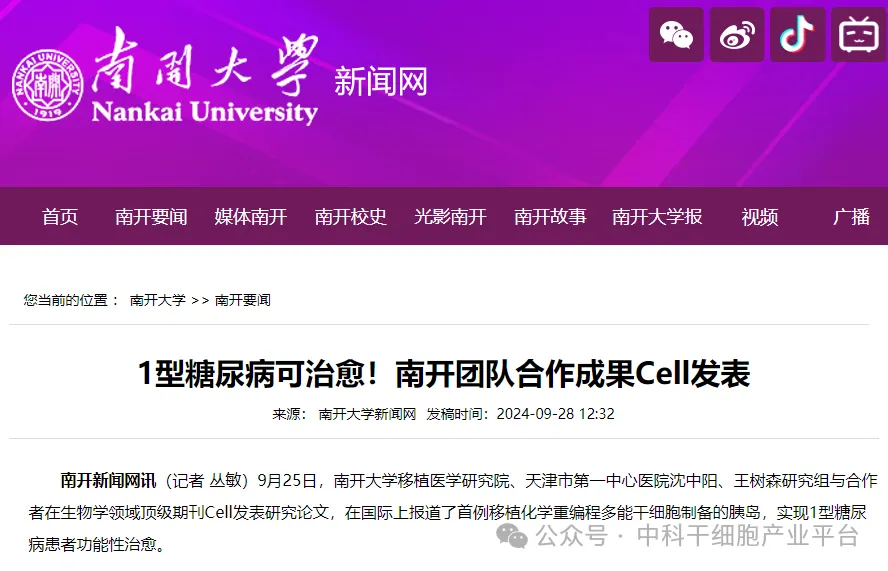
41% of patients stopped insulin within 2 to 6 months and stopped using insulin for an average of 9.3±3.8 months. In the Stem Cell Transplantation Department of Beijing Armed Police General Hospital, Director An Yihua and his team published a non-placebo-controlled prospective Phase 1/2 study in the journal Stem Cell Research & Therapy. The study involved 22 patients with type 2 diabetes who first received umbilical cord Wharton's glue MSC transplantation through the peripheral vein, and then transplanted again through the splenic artery 5 days later, and were followed up for 12 months. After transplantation, 41% of patients stopped insulin within 2 to 6 months and stopped using insulin for an average of 9.3±3.8 months. In addition, one patient discontinued oral hypoglycemic drugs. Although some mild to moderate adverse reactions such as fever, injection site hematoma, nausea, vomiting and headache occurred, these reactions resolved spontaneously.
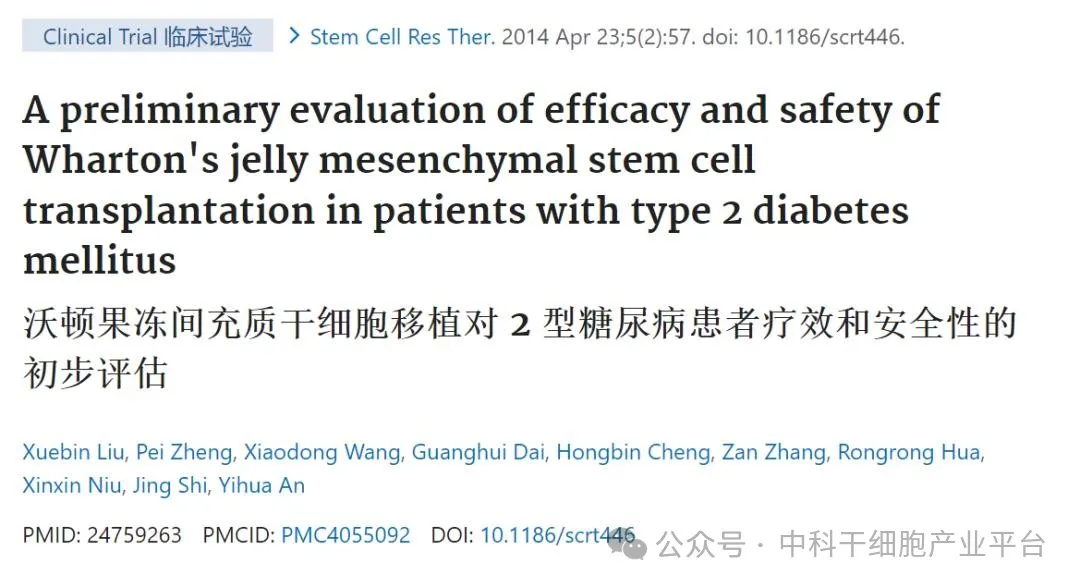
13.5% of patients stopped insulin after 8 to 24 weeks and stopped using insulin for an average of 37.2±15.2 weeks. Another study led by Professor Mu Yiming of the Endocrinology Department of the General Hospital of the People's Liberation Army and Professor Han Weidong of the Biotherapy Center was also published in the same journal. This is a single-center, randomized, double-blind, placebo-controlled trial designed to evaluate the effectiveness of umbilical cord MSC in the treatment of type 2 diabetes. The results showed that 13.5% of patients receiving cord MSC transplants discontinued insulin after 8 to 24 weeks and stopped using insulin for an average of 37.2±15.2 weeks. None of the patients in the control group stopped insulin. Although 2 patients were withdrawn from the study due to cerebral infarction and femoral neck fracture, the Independent Adjudication Committee assessed that these events were not directly related to cord MSC treatment. These research results provide a solid scientific basis for the use of MSC to treat type 2 diabetes and demonstrate its potential in reducing insulin dependence and managing diabetes. In short, the cause of diabetes is mainly influenced by multiple factors, which lead to the failure or reduced effectiveness of the patient's pancreatic beta cells, resulting in insufficient insulin secretion or weakened action. Therefore, restoring the function of pancreatic beta cells may help insulin-dependent diabetics reduce the need for frequent blood sugar monitoring and insulin injections.
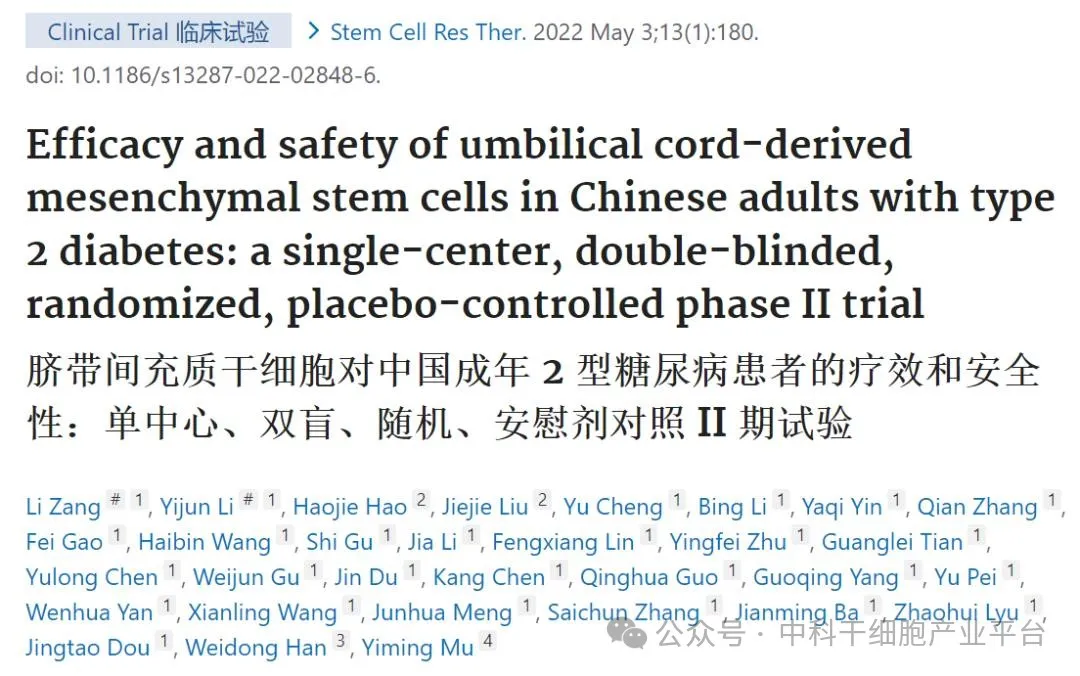
Eleven of the 1/2 subjects have reduced or completely stopped the use of exogenous insulin. In June this year, Vertex Pharmaceuticals announced the latest results of its stem cell therapy VX-880 in the Phase 1/2 clinical trial: Within three months after a single full dose of VX-880, all participating type 1 diabetic (T1D) patients successfully achieved transplantation of islet cells, and these cells were able to produce insulin in response to glucose stimulation. It should be particularly emphasized that at final follow-up, 11 of the 12 subjects had reduced or completely stopped the use of exogenous insulin.

Stem cell intervention in type 2 diabetes is safe and effective. The General Hospital of the People's Liberation Army (301 Hospital) conducted a research trial on umbilical cord mesenchymal stem cells for the clinical treatment of type 2 diabetes in adults in China. The results of this study showed that administration of umbilical cord mesenchymal stem cells (UC-MSCs) through intravenous infusion is a safe and effective method, which can reduce the demand for exogenous insulin and relieve insulin resistance in patients with type 2 diabetes. Umbilical cord mesenchymal stem cell transplantation is a potential treatment option for type 2 diabetes.
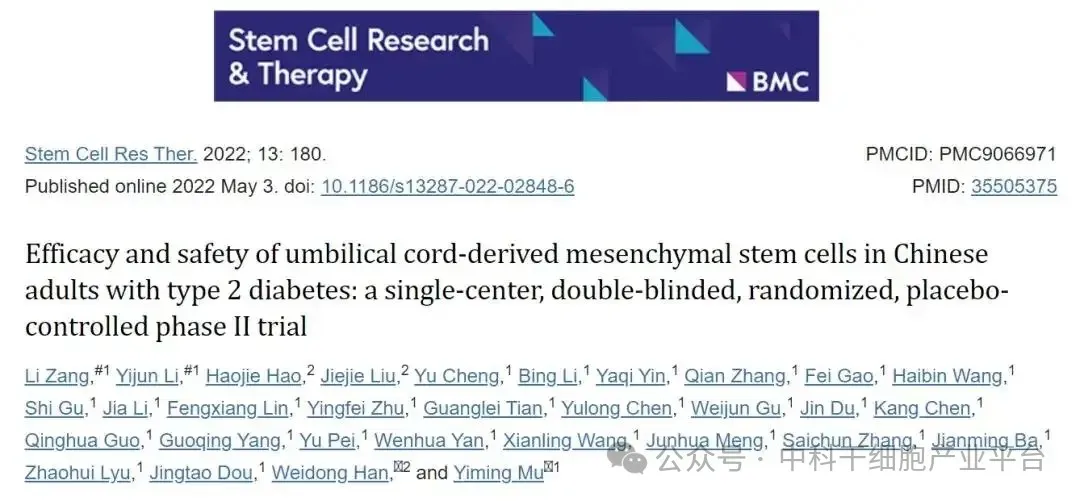
In the cutting-edge exploration of diabetes treatment, stem cell therapy is showing unprecedented potential and prospects. Specifically, through their unique immune regulation and regeneration capabilities, mesenchymal stem cells can not only effectively promote the functional recovery of pancreatic beta cells, but also significantly reduce insulin resistance. Their clinical efficacy is quite significant. It is particularly worth mentioning that the rise of autologous regenerative islet transplantation technology marks an innovation in diabetes treatment strategies and provides the possibility of achieving physiological reconstruction of islet function.